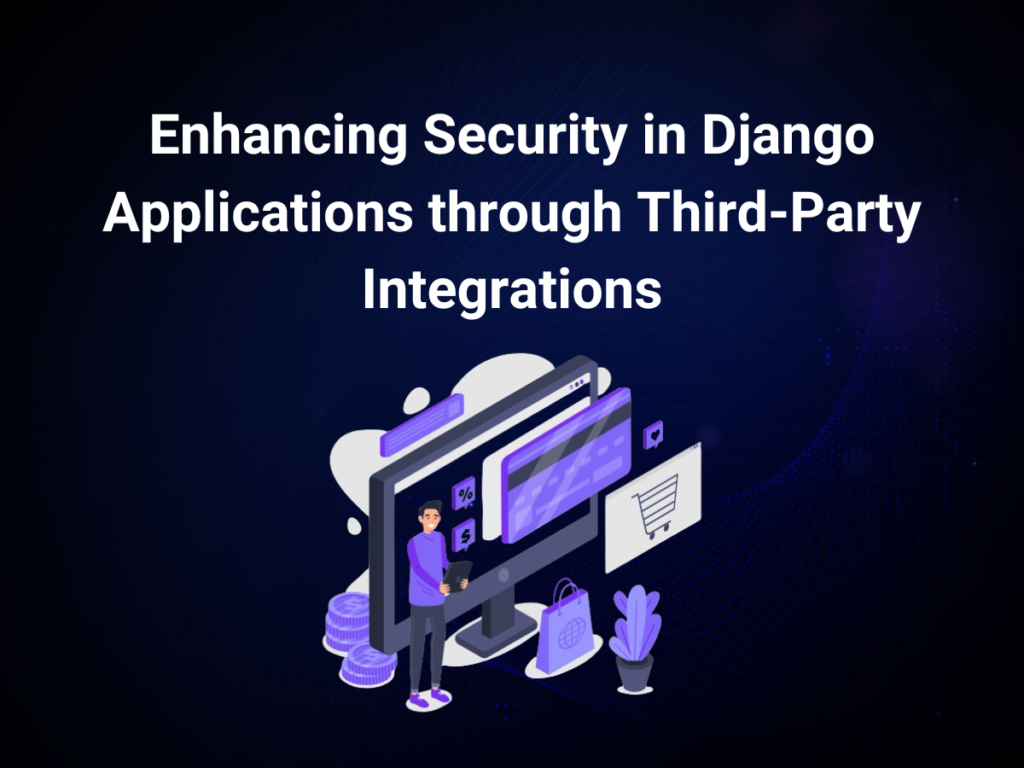In the world of web development, security is paramount. For companies and agencies offering Django development services, ensuring the safety and security of applications is a top priority. Django, a robust and versatile framework, comes with built-in security features. However, leveraging third-party integrations can significantly enhance the security of Django applications, providing an added layer of protection against potential threats. This article delves into how Django development companies and agencies can enhance the security of their applications through strategic third-party integrations.
Understanding Django’s Built-in Security Features
Before exploring third-party integrations, it’s essential to understand the security features that Django offers out of the box. Django includes several security mechanisms, such as:
- Cross-Site Scripting (XSS) Protection: Django automatically escapes output in templates, mitigating the risk of XSS attacks.
- Cross-Site Request Forgery (CSRF) Protection: Django provides built-in CSRF protection, requiring a token for any form submission.
- SQL Injection Prevention: Django’s ORM automatically escapes SQL queries, protecting against SQL injection attacks.
- Clickjacking Protection: Django includes middleware that sets the X-Frame-Options header to prevent clickjacking.
- Secure Password Storage: Django uses PBKDF2 by default to securely hash passwords.
While these features are robust, they may not cover every potential security vulnerability. This is where third-party integrations come into play.
The Role of Third-Party Integrations in Enhancing Security
Third-party integrations can augment Django’s built-in security features, offering additional tools and services that address specific security needs. For Django development agencies and companies, incorporating these integrations can provide a competitive edge by ensuring that applications are more secure and resilient against cyber threats.
1. Authentication and Authorization
Enhancing authentication and authorization mechanisms is crucial for any Django application. Third-party services like Auth0 and Okta provide advanced authentication features, including multi-factor authentication (MFA), single sign-on (SSO), and social login options. These services integrate seamlessly with Django, allowing developers to implement robust authentication systems without compromising on user experience.
By using such services, Django development companies can ensure that only authorized users gain access to sensitive parts of the application, significantly reducing the risk of unauthorized access.
2. Vulnerability Management
Tools like Snyk and WhiteSource can be integrated into Django applications to automatically detect and remediate vulnerabilities in dependencies. These tools continuously monitor the application’s dependencies for known vulnerabilities and provide alerts and fixes as soon as they are available.
For Django development services, utilizing these tools means staying ahead of potential security issues and ensuring that applications remain secure over time. This proactive approach to vulnerability management can save significant time and resources in the long run.
3. Web Application Firewalls (WAF)
Integrating a Web Application Firewall (WAF) such as Cloudflare or Akamai can provide an additional layer of security for Django applications. WAFs protect against common web attacks, including SQL injection, XSS, and DDoS attacks, by filtering and monitoring HTTP traffic between the application and the internet.
Django development companies can benefit from WAF integrations by ensuring that their applications are shielded from a wide range of cyber threats, thus enhancing the overall security posture of their deployments.
4. Security Information and Event Management (SIEM)
SIEM tools like Splunk and LogRhythm offer comprehensive security monitoring and incident response capabilities. By integrating these tools with Django applications, developers can gain real-time insights into security events and potential threats.
For Django development agencies, SIEM integrations enable proactive monitoring and swift response to security incidents, minimizing the impact of breaches and ensuring that security policies are effectively enforced.
5. Secure Storage and Encryption
Services like AWS Key Management Service (KMS) and Azure Key Vault offer secure storage and management of encryption keys. Integrating these services with Django applications ensures that sensitive data, such as user information and passwords, are encrypted both in transit and at rest.
Django development services can leverage these integrations to comply with industry standards and regulations regarding data security, providing clients with peace of mind that their data is protected.
Best Practices for Implementing Third-Party Integrations
While third-party integrations can significantly enhance security, it’s important to follow best practices to ensure their effective implementation:
- Evaluate and Vet Integrations: Thoroughly evaluate third-party services before integration. Check their security credentials, user reviews, and compatibility with Django.
- Regular Updates and Patching: Keep third-party services and dependencies updated to the latest versions to benefit from security patches and improvements.
- Minimal Permissions: Grant only the necessary permissions to third-party services to minimize the risk of unauthorized access.
- Monitor and Audit: Continuously monitor and audit the activity of third-party services to detect any suspicious behavior.
Conclusion
For Django development companies and agencies, enhancing security through third-party integrations is a strategic move that can provide significant benefits. By leveraging advanced authentication, vulnerability management, WAFs, SIEM tools, and secure storage solutions, developers can create more secure and resilient Django applications. Implementing these integrations not only bolsters the security posture of applications but also demonstrates a commitment to protecting user data and maintaining trust.
As the threat landscape evolves, staying ahead with robust security measures is essential. Integrating third-party security services with Django applications ensures that they are well-protected against the ever-growing array of cyber threats, providing a safer and more secure user experience.








